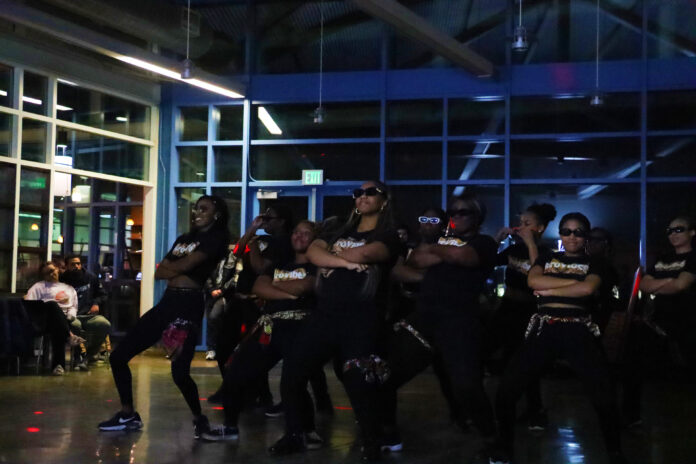The annual conference was hosted at UC Davis from Jan. 20 to Jan. 22 with the theme “A World We Imagine”
By KAYA DO-KHANH — campus@theaggie.org
From Jan. 20 to Jan. 22, the annual Students of Color Conference (SoCC) was hosted on the UC Davis campus by the UC Student Association (UCSA). The SoCC is the group’s largest and longest-running conference. It began in 1988 and “aims to serve as a safe space for students of color to engage in socio-political education and to strategize both statewide as well as campus-based actions and advocacy,” according to the delegation guide sent out for the conference.
The theme for this year’s conference was “A World We Imagine.” ASUCD External Affairs Vice President Celene Aridin elaborated on the theme, saying that it focused on “[how] we see the world and [what] we want to achieve in terms of student advocacy and student engagement in this ideal world that accepts students of color for who they are.”
There were more than 300 student delegates from across the UC campuses in attendance. The main conference took place in the ARC ballroom, while the workshops and identity caucuses were held in Wellman Hall.
“This is the first year that we’ve had it in-person in a long time, and we were really excited to get to host it at UC Davis,” UCSA University Affairs Committee Chair Saishruti Adusumilli said. “It was really exciting just to have so many people from all over the state come and see the campus.”
Adusumilli, who served as the external affairs vice president for two years previously, said that one of her goals was for Davis to increase its presence within UCSA.
“Over these past two years, I think we’ve done a really good job at representing Davis on a system-wide level,” Adusumilli said.
The keynote address was given by Taharka Anderson, who is a scholar, educator, speaker and organizer with over a decade of experience supporting social justice efforts. His research and activism focus on the social vulnerabilities of Black men and boys, the social construction and criminalization of Black children and anti-Blackness in schools and school discipline, according to his website.
There were 16 workshops offered at the conference, including “Women of Color In POWER,” “Closing Equity Gaps by Improving Financial Aid Awareness and Application Completion” and “Bayanihan: Uplifting Activism Within Cultural Identities.” A number of identity caucuses were also held by students and non-profit organizations, featuring guided discussion spaces for people with similar identities to come together and discuss their unique experiences.
Valeria Cantor Mendez, a third-year community and regional development major at UC Davis, hosted the Central and South American identity caucus and said that she found the workshops “very educational and very inspiring.”
“I feel like we were thoughtful about who [hosted] the workshops, and I really appreciated that,” Cantor Mendez said.
Aridin noted that this sort of attention to detail within the conference tied into their overall goal of inclusion and community.
“It was mainly to bring together students from across the UCs who identify as students of color and to empower them and show them that across the UC system, there’s a coalition of students who look like you,” Aridin said.
Written by: Kaya Do-Khanh — campus@theaggie.org









